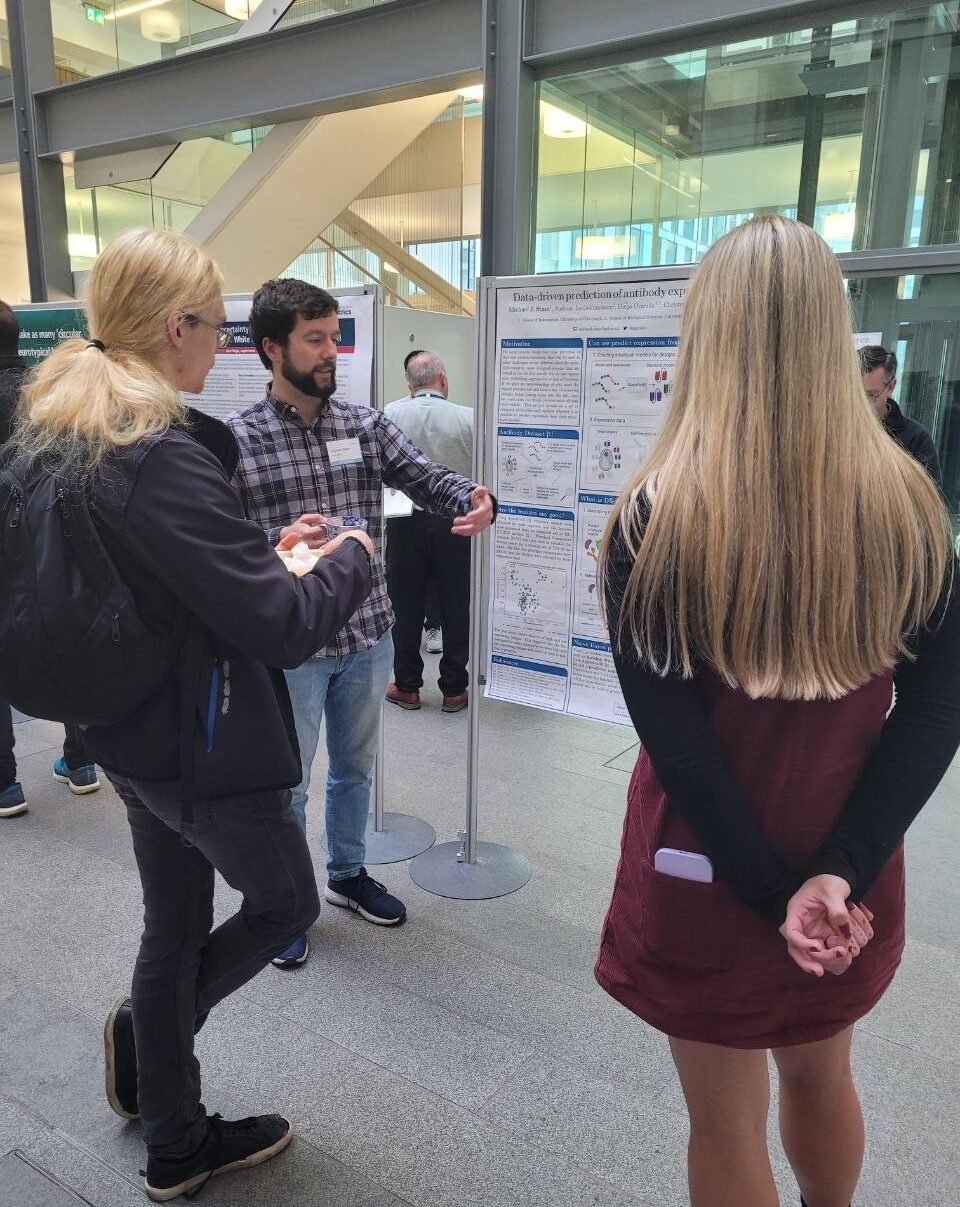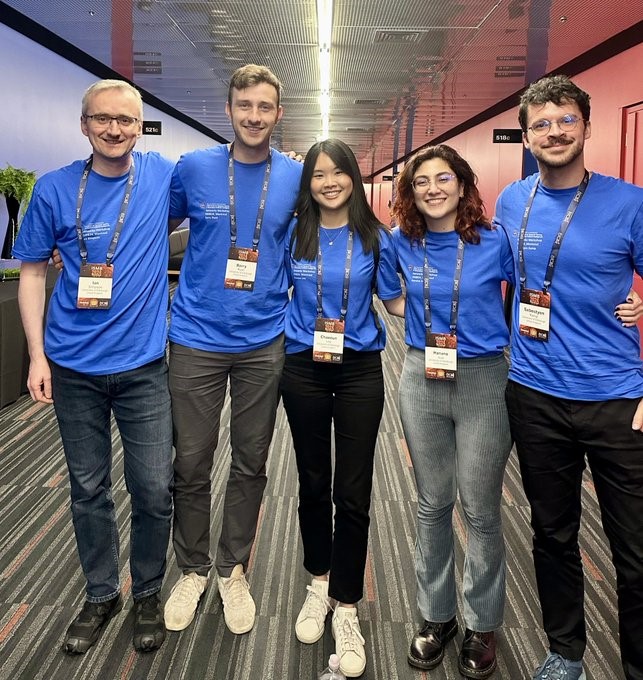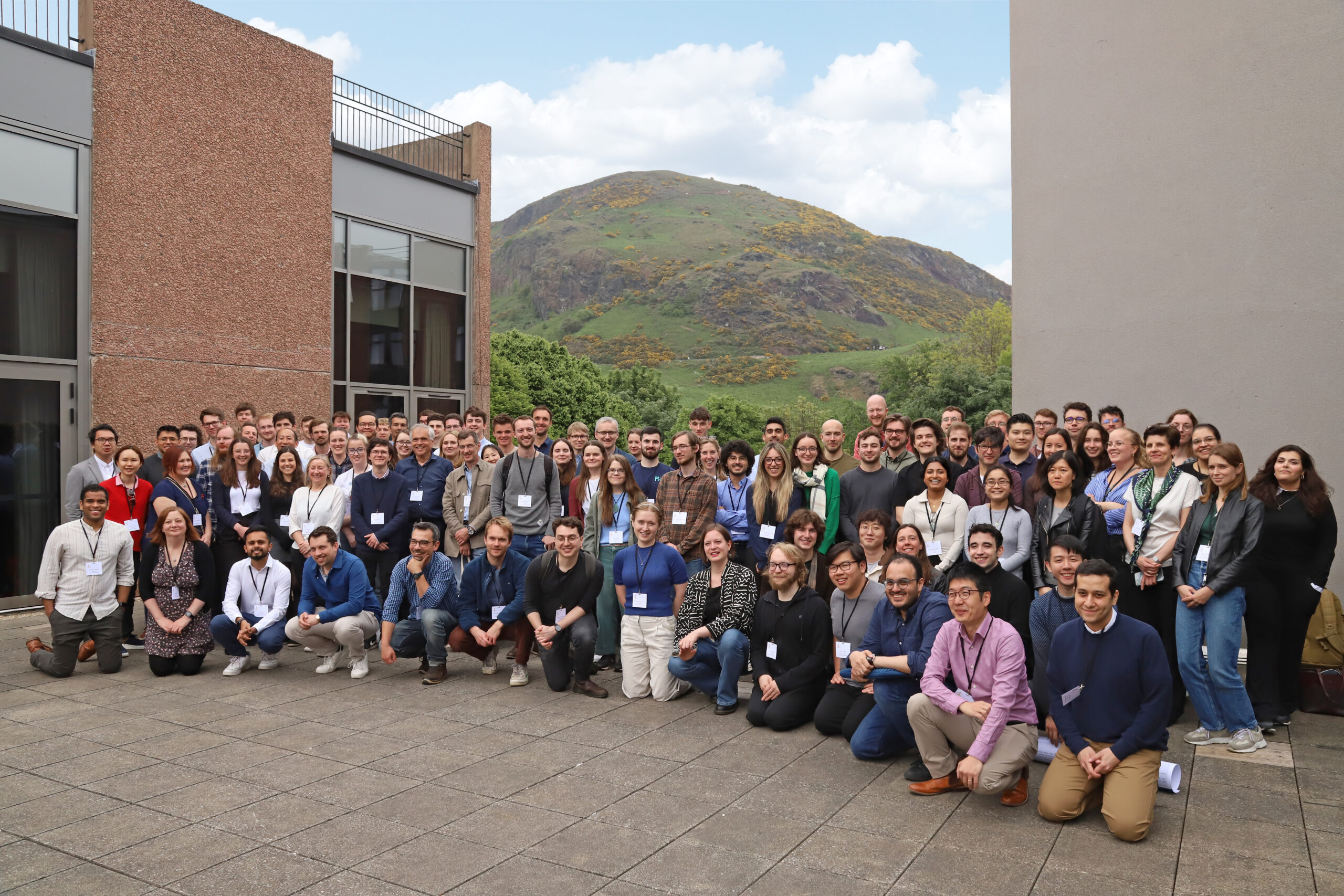Deadline for 2025 applications has now passed. Subscribe to our mailing list to get notified of future recruitment rounds.
Well-rounded training and development, collaboration and engagement opportunities provided to the students through our programme will turn them into highly competent, sought-after researchers suitable for a variety of careers both inside and outside of academia.

Innovative Research
with Real-World Applications
CDT research focuses on application of novel AI methods to real-world challenges, aiming to improve health outcomes for patients and benefit society.
Each PhD project in the CDT is co-designed and conducted in close collaboration with an external partner from the industry or public sector. This helps ensure that the projects are well targeted to the needs of stakeholders and have genuine potential for translation into real-world use.
Your PhD research will be guided by at least two supervisors from world-leading research groups across the University of Edinburgh, covering expertise in artificial intelligence and biomedical/health science. In addition to your PhD project, you will also have an opportunity to complete a research placement and internships with our UK and international partners.
You will also take part in pilot mini-projects and industry-led challenges, to provide you with a broad experience of delivering research and innovation in different environments and across different sectors.
Funding and Resources
We offer fully funded 4-year studentships, covering tuition fees, stipend (£19,237 in 2024/25) and an individual budget for travel and research costs. There are also allowances for sick pay, maternity leave and other purposes. Funding has open eligibility regardless of your nationality and domicile.
The CDT offers additional funding for public engagement activities, evaluation experiments and research visits.
Each student will also benefit from state-of-the-art facilities, including unique data and computational resources. The CDT has access to EPCC facilities including the University’s HPC Centre of excellence offering unique AI capability (Cerebras CS-1/CS2, Graphcore Bow Pod), supercomputing (ARCHER2, DiRAC, Cirrus), and analytics platforms, assisted by over 100 technology experts. EIDF will provide research compute capacity for AI via a new cluster of 136 Nvidia A-100 GPU cards.


Flexible interdisciplinary training
Our programme is a 4 year PhD with integrated study which offers a very high degree of flexibility. You will be able to decide which opportunities to undertake and in what year to best suit your learning, research, and career development needs.
You will undertake tailored training in science communication, stakeholder engagement, leadership skills, career planning, research integrity, public outreach and many other areas. You will also have access to a variety of events including seminars, masterclasses, summer schools, conferences, guest lectures, hackathons, challenges, and partner engagement days.
Our training model is suitable for both those with relatively little prior exposure to computer science and mathematics, but who contribute essential biomedical knowledge, and those with backgrounds in computer science, mathematics or physics who wish to develop and apply methodologies to biomedicine.
Entrepreneurship & Innovation
The CDT is well-connected with Edinburgh Innovations, Data-Driven Innovation Hubs and the Bayes Centre, the University’s world-leading innovation hub for Data Science and Artificial Intelligence. Through these collaborators you will gain access to mentoring, business advice, incubation, entrepreneurial courses, acceleration, and a rich network of contacts. The CDT also has a dedicated Entrepreneurship Lead who can offer one-to-one support and expertise.
We have resource for up to 20 CDT students to take part in the Venture Builder Incubator, a four-month digital transformation programme providing students with the entrepreneurial skills and knowledge to exploit the commercial potential of their research and develop science-based startups that positively impact society.


Student Support for all Needs
The CDT seeks to foster an inclusive and accessible environment where everybody feels supported and respected. The principles of Equality, Diversity and Inclusion (EDI) underpin all our practices, policies and vision.
CDT programme offers tailored support and flexible working patterns to meet individual student needs. Studies can be undertaken on a part-time basis to accommodate students wishing to combine their research training with work or personal responsibilities. All CDT studentships are fully funded and have provisions for sick pay, parental leave and disabled students support. We also provide individual coaching sessions to students from underrepresented groups to support their PhD journey and post-PhD career choices.
The University of Edinburgh has a range of support structures and policies aimed at helping you get the most of your studies. There are also many informal student societies and support networks at the University dedicated to creating and maintaining a safe and welcome space for their members. These include LGBTQ+ Society, Edinburgh University Women in STEM Society, Mental Health and Wellbeing Society, Student Carers group and many others.
If you feel there are any barriers that could prevent you from successfully undertaking our CDT programme, please feel free to contact us and discuss your concerns.
Cohort and Community Connections
The CDT training programme is cohort-based, with each cohort comprising students from different backgrounds and with complementary knowledge. You will collaborate closely with your cohort peers, exchanging ideas and supporting each other’s learning. You will gain experience in interdisciplinary teamwork by completing group mini-projects and hackathon challenges and developing public engagement activities as part of your CDT programme.
By joining the CDT you will also get access to the world-class interdisciplinary research community at the University of Edinburgh. The School of Informatics, which hosts the CDT, is the largest Computer Science department in the UK and one of the largest in Europe, with over 300 academic and research staff and over 2,000 students.
You will have opportunities to connect and collaborate with other postgraduate research groupings at the University of Edinburgh and beyond, including various CDTs in the School of Informatics, the MRC Precision Medicine Doctoral Training Programme, CDTs in AI for Healthcare in UCL, Imperial, and Leeds.


